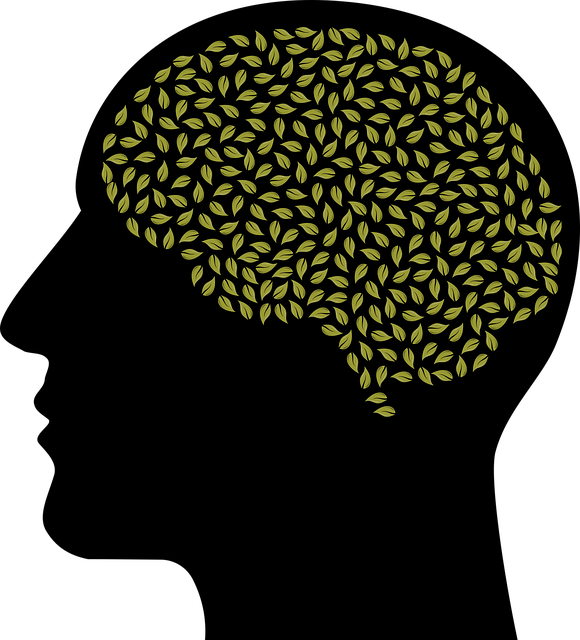Mental wellness is a key aspect of overall health, influenced by daily stressors like work pressure and relationship issues. Arvada Cognitive Behavioral Therapy (CBT) offers a structured approach through journaling exercises to address negative thought patterns and promote positive thinking. This evidence-based method enhances emotional regulation, supports crisis intervention, and fosters self-awareness for better mental wellness management. Combining CBT with personalized journaling, gratitude, mindfulness, and affirmations improves mood, stress reduction, and overall well-being, as backed by Mind Over Matter principles.
“Unwind your mind and embark on a journey of self-discovery with mental wellness journaling. In today’s fast-paced world, prioritizing cognitive health is essential. This comprehensive guide introduces Arvada Cognitive Behavioral Therapy (CBT) as a powerful tool to enhance daily life through reflective writing. Learn how setting up a dedicated journal can transform negative thoughts into constructive reflections. Discover effective techniques to incorporate gratitude, mindfulness, and affirmations, fostering positive mental wellness.”
- Understanding Mental Wellness and Its Impact on Daily Life
- Introducing Arvada Cognitive Behavioral Therapy (CBT) as a Journaling Companion
- Setting Up Your Journal for Effective Reflection
- Techniques to Capture Negative Thoughts and Reframe Them
- Incorporating Gratitude, Mindfulness, and Affirmations into Your Routine
Understanding Mental Wellness and Its Impact on Daily Life

Mental wellness is a crucial aspect of our overall well-being, influencing how we think, feel, and act in our daily lives. It encompasses emotional, psychological, and social health, shaping our ability to cope with stress, make choices, and relate to others. Understanding mental wellness involves recognizing its impact on various aspects of life—from academic and professional success to personal relationships and overall quality of life.
In today’s fast-paced world, maintaining optimal mental wellness can be challenging. Factors like work pressure, financial worries, and relationship issues can contribute to emotional distress. This is where Arvada Cognitive Behavioral Therapy (CBT) steps in as an effective tool for navigating these challenges. CBT focuses on identifying negative thought patterns and replacing them with more positive and realistic ones, thereby enhancing emotional regulation skills. Additionally, community outreach program implementation and crisis intervention guidance play pivotal roles in supporting individuals who face mental health crises or struggle to manage their emotional well-being.
Introducing Arvada Cognitive Behavioral Therapy (CBT) as a Journaling Companion

Introducing Arvada Cognitive Behavioral Therapy (CBT) as a Journaling Companion
Arvada Cognitive Behavioral Therapy (CBT) is an evidence-based approach that has proven effective in enhancing mental wellness. As a journaling companion, CBT offers powerful strategies to navigate and manage thoughts, feelings, and behaviors. By combining the reflective nature of journaling with CBT techniques, individuals can gain deeper insights into their emotional processes and develop healthier coping mechanisms.
This therapy encourages self-awareness through structured exercises that prompt users to identify negative thought patterns, challenge cognitive distortions, and replace them with more realistic and positive ones. Incorporating these practices within a journal allows for personalized tracking of progress, making it an ideal tool for those seeking better mood management and stress reduction. Moreover, engaging in regular CBT journaling can be a valuable component of comprehensive mental wellness coaching programs and development initiatives offered by organizations focused on stress management workshops.
Setting Up Your Journal for Effective Reflection

Starting your mental wellness journey with a journal can be empowering. To make the most of this exercise, consider personalizing your space for effective reflection. Choose a quiet and comfortable area where you won’t be disturbed, ensuring it’s a dedicated spot for your journaling practice. Select a journal that feels right; it could be a traditional notebook or a digital document, depending on your preference.
Incorporate tools that support your process, such as using colored pens to highlight different emotions or themes, or adding prompts related to Arvada Cognitive Behavioral Therapy (CBT) techniques for stress management and mental health awareness. Regularly reviewing your entries can help you identify patterns and triggers, fostering cultural competency within yourself and your healthcare provider relationships.
Techniques to Capture Negative Thoughts and Reframe Them

Journaling is a powerful tool for self-reflection and personal growth, especially when coupled with Arvada Cognitive Behavioral Therapy (CBT) techniques. One effective strategy involves capturing negative thoughts and reframing them to promote mental wellness. Start by identifying those recurrent negative thoughts that may surface during your day. Write them down without judgment in your journal. Once you’ve externalized these thoughts, the next step is to analyze their validity. Are they based on facts or emotions? Using CBT principles, challenge these thoughts and look for evidence that contradicts them. For example, if you think, “I always mess things up,” consider past successes or instances where you demonstrated competence.
This process encourages a more balanced perspective, fostering emotional healing processes and mental health awareness. By reframing negative thoughts, you can transform them into constructive ones, leading to improved coping mechanisms and overall well-being. Engaging in this exercise regularly, as suggested by crisis intervention guidance, can help individuals cultivate resilience and enhance their ability to navigate life’s challenges with a more positive mindset.
Incorporating Gratitude, Mindfulness, and Affirmations into Your Routine

Incorporating gratitude, mindfulness, and affirmations into your mental wellness journaling routine can significantly enhance your overall well-being. Start each entry by reflecting on things you’re grateful for—a practice that fosters a positive mindset and helps you appreciate life’s small joys. This simple act of acknowledging the good can boost your mood and promote a sense of contentment.
Additionally, dedicate space to mindfulness exercises like deep breathing or meditation prompts. These practices calm the mind, reduce stress, and improve focus. Incorporate affirmations—short, positive statements about yourself—to counter self-critical thoughts with encouraging words. Regularly reviewing these affirmations can reinforce a more positive self-image and support your mental health journey, much like Arvada Cognitive Behavioral Therapy (CBT) sessions guide individuals toward healthier thought patterns. Engaging in these practices as part of your Mental Wellness Journaling Exercise Guidance aligns with Mind Over Matter principles and can be beneficial even for those undergoing Healthcare Provider Cultural Competency Training.
Mental wellness journaling is a powerful tool for self-discovery and growth, utilizing the principles of Arvada Cognitive Behavioral Therapy (CBT) to reframe negative thoughts and foster positive affirmations. By setting up your journal effectively and incorporating techniques like gratitude and mindfulness, you can create a consistent routine that enhances mental well-being. Remember, just as CBT helps navigate challenging thoughts, your journal becomes a personal sanctuary where you can explore and transform your mindset, ultimately leading to a happier and more balanced life.














